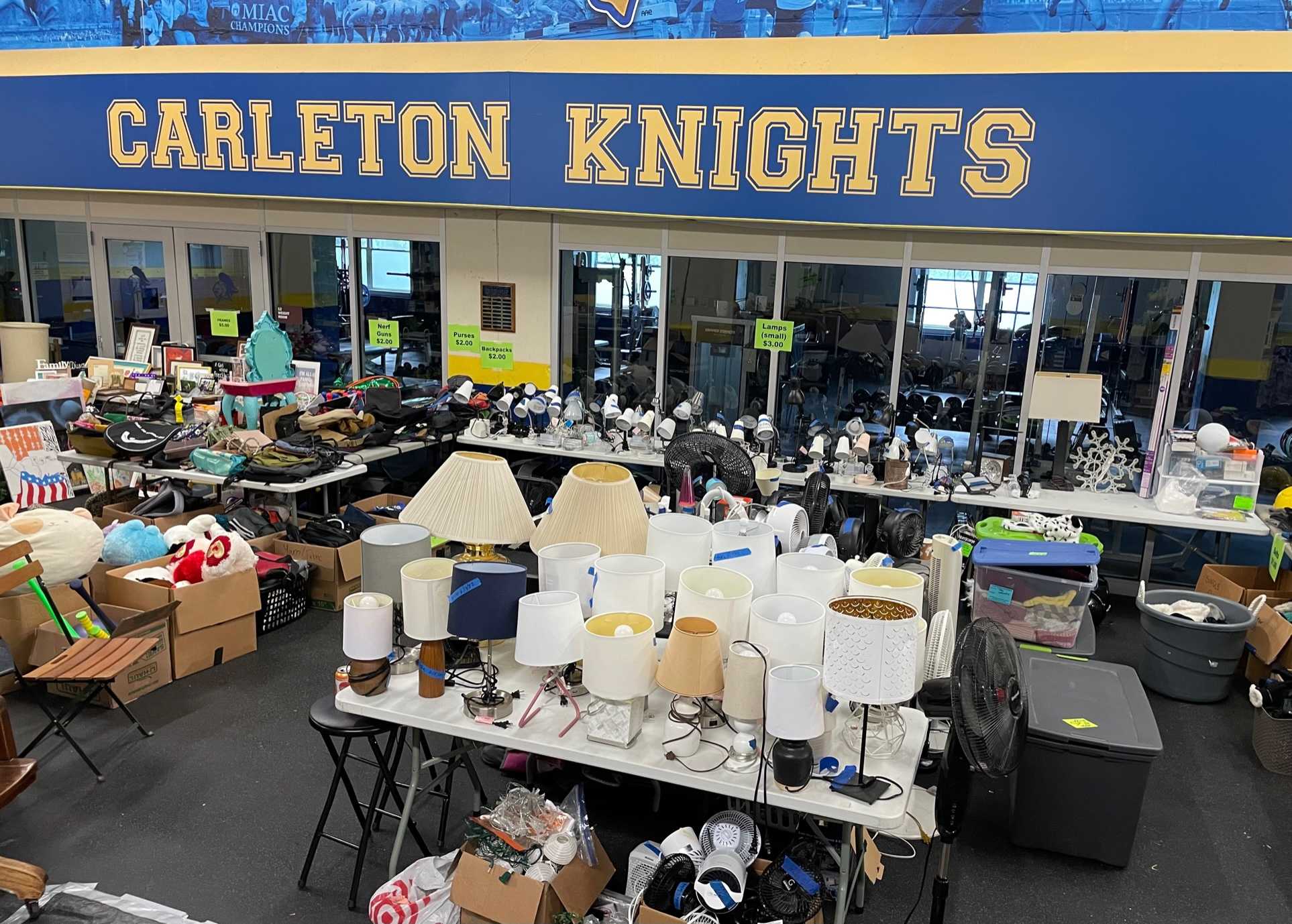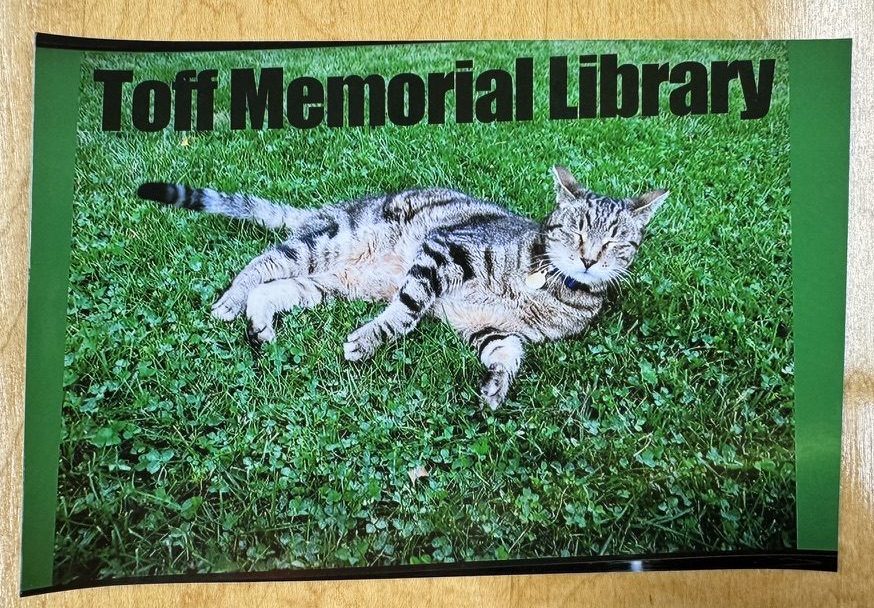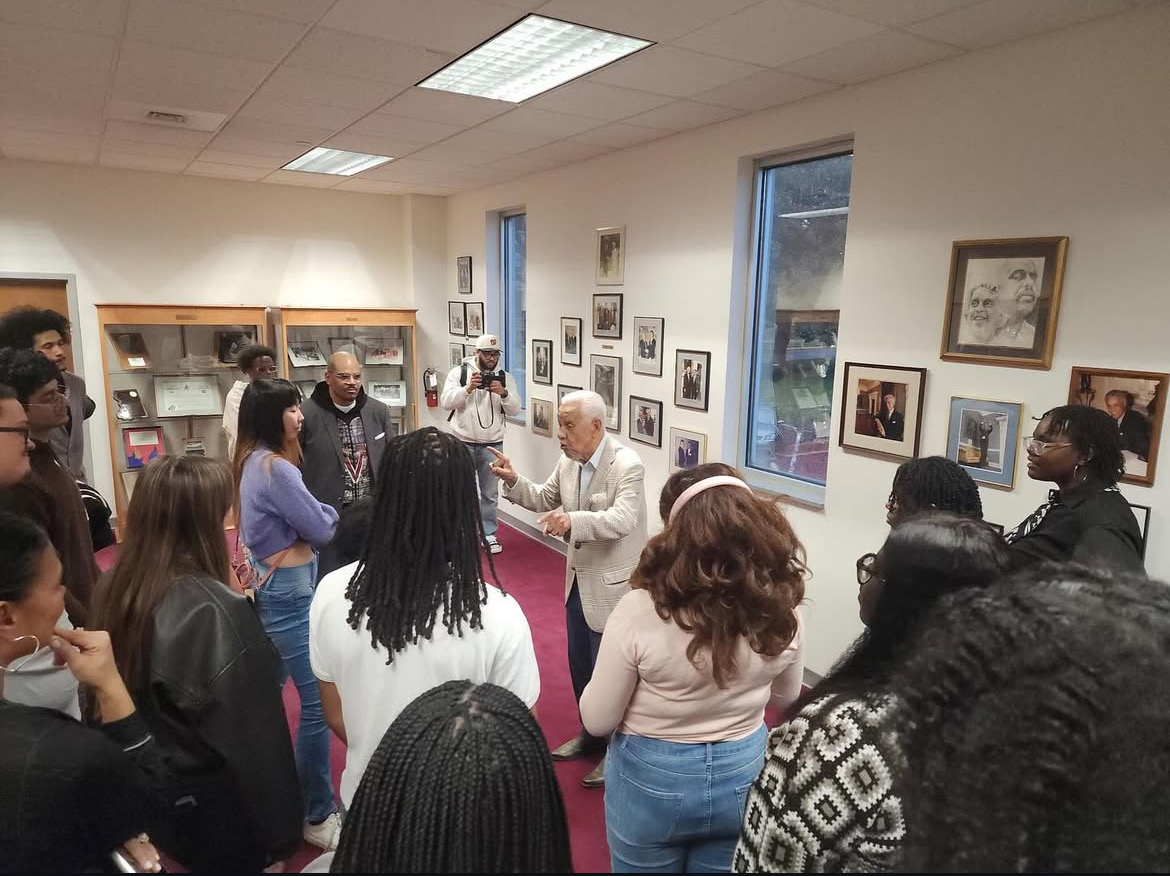
A carbon footprint is the total greenhouse gas emissions caused by an individual, event, organization, service, place or product. There are many things an individual can do to reduce their carbon footprint, but during the school year, it can be particularly hard for students to stay mindful of all the small choices that can impact the environment. Lots of times, it’s easier and more convenient to grab a to-go cup instead of a reusable one, or buy cheap fast fashion instead of walking to one of the second-hand stores in town. Luckily, there are plenty of things you can do, and programs you can take part in, to help reduce your carbon footprint and make sustainable choices. Here is a guide:
- Lighten Up
Lighten Up is a waste diversion and community supporting initiative. It keeps items that would otherwise end up in landfills in circulation around Carleton’s campus and the Northfield community at large. Just last year, Lighten Up collected 70,000 pounds of donated clothing, bedding, dorm accessories, appliances, books and more; managing 2.5% of Carleton’s total waste stream.
Each Spring Term, boxes and pods are set up around campus for students to donate unwanted items — from clothes to coffee makers to blankets that students don’t want or need anymore. With all the items that are collected, four huge sales take place throughout the year and the summer: one for community members, one for new students, one for alumni and one for Carleton seniors. Each sale is tailored to the particular needs of each group. For instance, the sale for alumni consisted of Carleton gear and memorabilia, while the one during New Student Week had dorm essentials that first-years may be looking for.
The reuse cycle does not end when things don’t sell at a Lighten Up sale. Erica Zweifel, Assistant Director of Community Impact, said of the community partners who take items that do not sell: “Sheets get made into quilts, rugs and drop cloths. T-shirts get made into jump ropes and rags for local farmers. Jeans get made into jackets. Our e-waste is handled by an e-waste recycler. We offer the rest of our unsold clothing and household items to nonprofits; Growing up Healthy, Disabled Veteran and the Epilepsy Foundation.”
Proceeds of the Lighten Up sale go to partner organizations in the Northfield community.
- Food Recovery Network
Food Recovery Network is a nationwide initiative which Carleton houses a chapter of. The goal of the organization is to “fight waste and feed people.” At the end of each meal in the dining hall, there is inevitably leftover food that, without the Food Recovery Network, would go to waste. Volunteers collect this surplus of food and deliver it to organizations in Northfield and Faribault that work to fight food insecurity.
Food Recovery Network also collects surplus food from retail stores in Northfield like Cub Foods, Target and Tandem Bagels. This food, in addition to dining hall food, is delivered to the Community Action Center Food Shelf, Greenvale Elementary School, St. Dominic’s Church and the Key Youth Center. Each week, the Food Recovery Network collects and redistributes upwards of 1,500 pounds of food.
- Clothing Recovery
Lighten Up will collect all your unwanted items in the spring, but what about the rest of the year?
Year-round, there are cardboard boxes located in all laundry rooms across campus. These boxes are there for students to donate unwanted clothing items, instead of throwing them away. Once or twice a term, the boxes are picked up, sorted through and donated to by student volunteers. Donations go to Clothes Closet, a second hand store in town, and some go to Lighten Up.
By putting your clothes in these boxes, you’re saving them from the landfill and benefiting the community.
In addition to these programs, there are so many small changes you can make to reduce your carbon footprint on a daily basis:
- Don’t phantom charge. When your phone, laptop or tablet is done charging, unplug it!
- Buy sustainable. Fast fashion uses large amounts of water and energy, depletes natural resources and emits lots of greenhouse gasses. Consider going thrifting in Northfield, or investing in slightly more expensive, more sustainable brands.
- Reduce dairy and meat intake. The meat and dairy industries contribute largely to the emission of greenhouse gasses. Even vowing to not eat meat and dairy just once a week can lower your carbon footprint significantly.
- Do full loads of laundry. A full load means less loads, and less loads means less water.
- Switch to LED bulbs. LED lights produce 80% less greenhouse gasses than incandescent bulbs.











